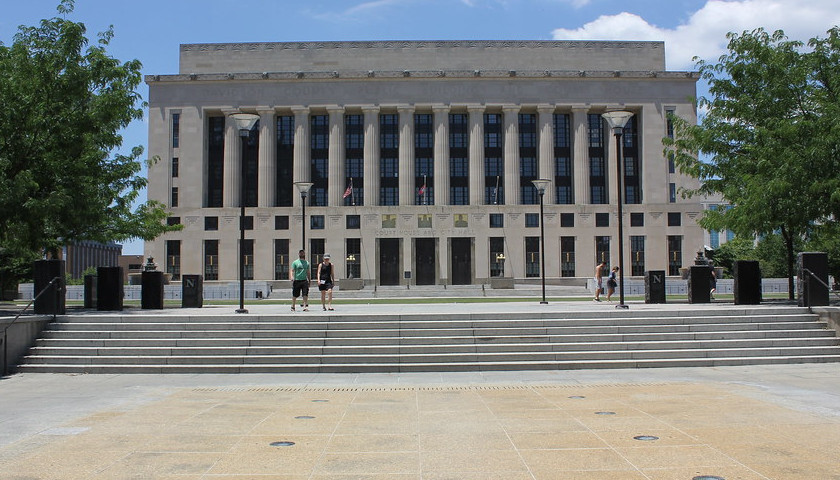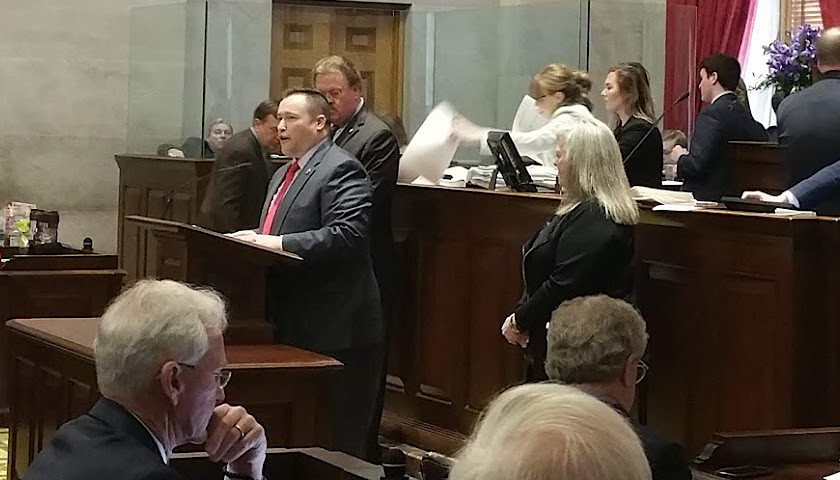Monday morning on The Tennessee Star Report, host Leahy welcomed State Representative (R-TN-57) Susan Lynn in studio to announce her decision on whether to run in Tennessee’s Fifth Congressional District race and to comment on the status of several bills currently in the General Assembly.
Read the full storyTag: Representative Susan Lynn
Tennessee Legislature Passes Bill Changing Davidson County Boundary Line
Part of Davidson County will now go to Wilson County, according to a bill passed by the Tennessee General Assembly this week. As reported by The Tennessee Star, the latest development was the culmination of a lengthy process that began in 2019, undertaken by Davidson County resident Mason Hunter. Hunter’s property was divided between the two counties, and the only accessible driveway was located in Wilson County.
The boundary change received unanimous bipartisan support in both the House and Senate up until the final House vote on the bill. Only four members voted against the change: State Representatives Mark Cochran (R-Englewood), Ron Gant (R-Rossville), Chris Todd (R-Madison County), and Ryan Williams (R-Cookeville).
Read the full storyA New Level of Voter ID: Proposed Bill to Require Fingerprint Match for Voting Moves Through General Assembly
Voter ID issues may become a thing of the past in Tennessee if the General Assembly approves new legislation proposing fingerprint readers. The bill proposes that the state implement fingerprint-reading technology to verify a voter’s identity. Tennessee Bureau of Investigation and all state agencies share the contents of their fingerprint databases with the Secretary of the State to establish this new method of ID verification.
State Representative Susan Lynn (R-Mount Juliet) and State Senator Frank Niceley (R-Strawberry Plains) introduced the legislation last month. With certain exceptions, current Tennessee law only requires that voters offer federal or Tennessee state IDs containing their name and photograph, such as driver’s licenses, passports, and military ID – even if they’re expired. Those exempt from these current stipulations include those who vote absentee by mail.
Read the full storyTennessee Legislators Propose Empowering General Assembly to Scrutinize Presidential Executive Orders for Constitutionality
Several state representatives and senators have proposed a bill to review the constitutionality of presidential executive orders. According to the bills, if Congress doesn’t affirm an executive order and isn’t signed into law, then the joint government operations committee of Tennessee’s General Assembly would review whether the order overextends its scope of authority. Upon concluding their review, the committee would decide whether to recommend the Tennessee Attorney General and Governor to reexamine or seek an exemption from the order.
Additionally, the bill proposed that no state agency, political subdivision, elected officials, or government employees could enforce the order if the Tennessee Attorney General determines it is unconstitutional. That portion of the proposed bill would specifically apply to orders concerning pandemics or public health emergencies; natural resource regulations; agricultural industry regulations; land use regulations; financial regulations concerning environmental, social, or governance standards; and Second Amendment regulations.
Additionally, the bill proposed that no state agency, political subdivision, elected officials, or government employees could enforce the order if the Tennessee Attorney General determines it is unconstitutional. That portion of the proposed bill would specifically apply to orders concerning pandemics or public health emergencies; natural resource regulations; agricultural industry regulations; land use regulations; financial regulations concerning environmental, social, or governance standards; and Second Amendment regulations.
Additionally, the bill proposed that no state agency, political subdivision, elected officials, or government employees could enforce the order if the Tennessee Attorney General determines it is unconstitutional. That portion of the proposed bill would specifically apply to orders concerning pandemics or public health emergencies; natural resource regulations; agricultural industry regulations; land use regulations; financial regulations concerning environmental, social, or governance standards; and Second Amendment regulations.
Tennessee State Representative Susan Lynn Outlines Educational Priorities for the General Assembly’s Special Session
Tuesday morning on the Tennessee Star Report, host Michael Patrick Leahy welcomed TN (R) Representative Susan Lynn to the studio to discuss the upcoming special session in the General Assembly and its focus on education.
Read the full storyState Representative Susan Lynn Joins Host Leahy in Studio to Discuss Her Role in the American Legislative Exchange Council
Tuesday morning on the Tennessee Star Report, host Michael Patrick Leahy welcomed Representative Susan Lynn to the studio to explain her role and mission as one of the board of directors at the American Legislative Exchange Council.
Read the full storyAfter Failing and Then Being Recalled, Post Roe v. Wade Abortion Banning Bill Passes House Committee
A bill that would ban abortions in the event Roe v. Wade is overturned by the U.S. Supreme Court passed out of the House Health Committee where it was recalled to after failing in a House Subcommittee. The proposed legislation, officially named the Human Life Protection Act, has been dubbed as the “trigger bill,” because its enactment would be effective upon an outside action. The two potential outside actions are the overturning, in whole or in part, of the Supreme Court’s 1973 Roe v. Wade decision or an amendment to the U.S. Constitution returning the ability to regulate abortion to the states. The bill is sponsored in the House by Representative Susan Lynn (R-Mt. Juliet) and Senator Dolores Gresham (R-Somerville) in the Senate as HB 1029 and SB 1257, respectively. After hearing testimony from the House legal counsel on the constitutionality of the bill in the House Public Health Subcommittee, the measure failed by a vote of 3 Ayes to 4 Noes on March 27. Meanwhile, the Senate version passed that body’s Judiciary Committee on April 9, at the same meeting that the Heartbeat Bill was later essentially defeated by being sent to summer study, by a vote of 7…
Read the full storyThe Pro-Life Heartbeat Bill Passes the Tennessee House, Despite Protests From Planned Parenthood and Democrats
NASHVILLE, Tennessee – The majority of State House members voted for a pro-life Heartbeat Bill that bans abortion after a fetal heartbeat is detected, although the bill’s passage wasn’t without protests from Planned Parenthood and opposition by House Democrats. As reported by The Tennessee Star, the Heartbeat Bill, sponsored by Representative Micah Van Huss (R-Jonesborough) as HB 0077 passed in the House on Thursday by a vote of 65 Ayes, 21 Nays and 7 Present Not Voting. But, before the bill was presented and voted on, legislators were met with Planned Parenthood protesters in the rotunda of the Capitol outside the House chambers. Pro-life supporters were overwhelmed by pro-abortion protesters in both numbers and volume. Pro-abortionists, organized by Tennessee Advocates for Planned Parenthood’s Executive Director Francie Hunt and Community Organizer Elizabeth Thomas as a “Healthcare not Hangers” event, numbered about two dozen. All presented hand-written signs with disturbing messages describing supposed methods a woman would take if she were denied the right to a legal abortion. One pro-life supporter, Brenda Catanach, pointed out to The Star that the signs represented actions that are all self-inflicted by a woman’s own choice and not imposed upon her against her will. In addition…
Read the full story






